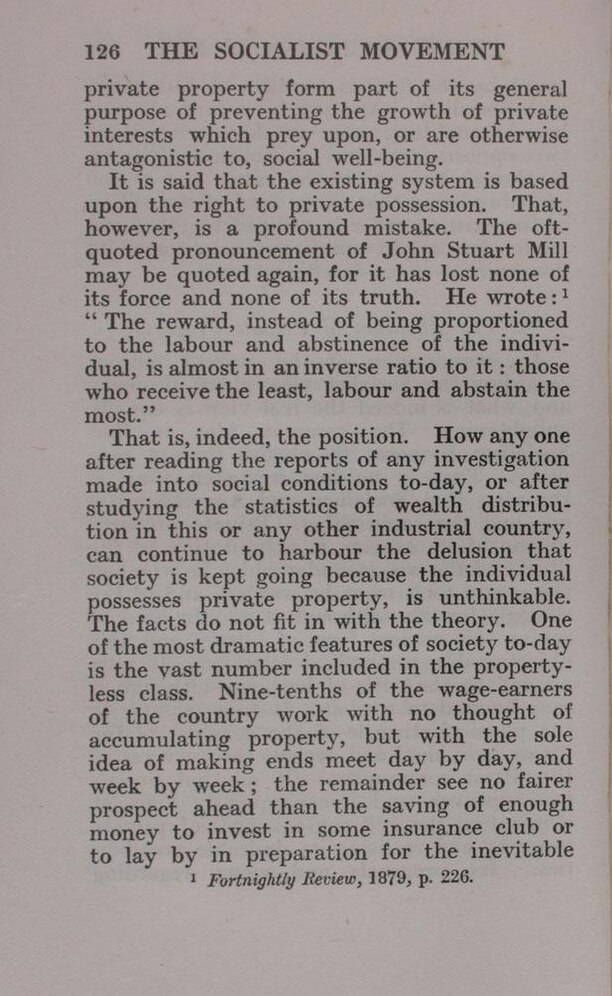private property form part of its general purpose of preventing the growth of private interests which prey upon, or are otherwise antagonistic to, social well-being.
It is said that the existing system is based upon the right to private possession. That, however, is a profound mistake. The oft-quoted pronouncement of John Stuart Mill may be quoted again, for it has lost none of its force and none of its truth. He wrote:[1] "The reward, instead of being proportioned to the labour and abstinence of the individual, is almost in an inverse ratio to it: those who receive the least, labour and abstain the most."
That is, indeed, the position. How any one after reading the reports of any investigation made into social conditions to-day, or after studying the statistics of wealth distribution in this or any other industrial country, can continue to harbour the delusion that society is kept going because the individual possesses private property, is unthinkable. The facts do not fit in with the theory. One of the most dramatic features of society to-day is the vast number included in the propertyless class. Nine-tenths of the wage-earners of the country work with no thought of accumulating property, but with the sole idea of making ends meet day by day, and week by week; the remainder see no fairer prospect ahead than the saving of enough money to invest in some insurance club or to lay by in preparation for the inevitable
- ↑ Fortnightly Review, 1879, p. 226.
